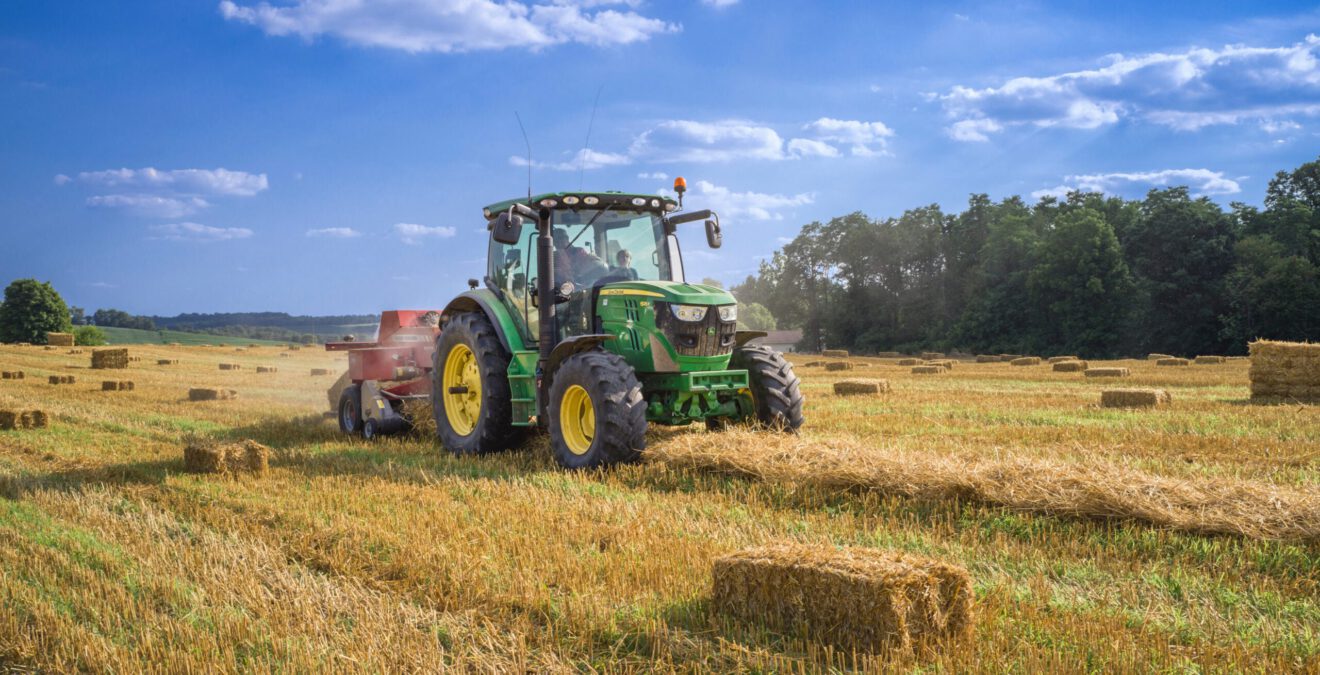As the coronavirus pandemic continues, increased at-home food and beverage consumption has not waned. The need for more essential items at groceries has caused immense pressure on global supply chains for consumer packaged goods and ingredients manufacturers, prompting producers in those supply chains to find innovative solutions for providing more food while limiting in-person contact.
Agtech helps supply chains meet demand
Across industries, companies of all sizes have pivoted to doing business online; the agriculture industry is no exception. The market for agricultural technology has exploded in recent years, and agtech has continued its growth during the pandemic. These digital options are some of primary ways that food and beverage manufacturers such as Land O’Lakes have been able to weather this unprecedented time.
“Because of the sudden shift to doing all things online, we’re also driving the adoption of the digital channels creating an omni-channel experience throughout the system, including acceleration of our back-end system integrations, simplification of transactions and increased reliance on the agtech tools with and through our retail network,” said Land O’Lakes Chief Technology Officer Teddy Bekele.
Food corporation Cargill has also invested heavily in digital services for its farmers and customers to ensure that all stakeholders remain safe and healthy during the COVID-19 pandemic while maintaining strong supply chains.
“Our digital tools that enable farmers to view grain contracts and positions online, sign contracts electronically, access information and data, and discuss business virtually were all critical,” said Ben Fargher, managing director of customer solutions and services for Cargill Agricultural Supply Chain – North America. “We pivoted to virtual meetings and hosted virtual agronomic field days, leveraging technology to keep farmers engaged and informed. These agtech tools were and still are essential.”
Earlier this fall, Cargill launched GrainBridge, a joint venture with food processing company Archer-Daniels-Midland. The grain marketing platform allows users to find all relevant information to the process in one online source. Farmers working with Cargill and/or ADM currently have access to the tool but hope to expand its user base.
“Our hope is that other grain companies, grain buyers, technology and data providers will participate in this platform, too, giving farmers a seamless 360-degree view of their business,” Fargher added.
Land O’Lakes has also found significant success from its agtech partnerships. The relationship between Land O’Lakes and agricultural solutions provider WinField United has provided producers with comprehensive data, allowing them to “think more about the profitability and sustainability of [each] acre and getting the most return on their input investment,” said Bekele. And, as the pandemic hit the US, the agriculture cooperative worked with many technology partners for its “Turn on the Wi-Fi” initiative that created 2,500 new public locations across the country offering free Wi-Fi services.
Critical need for rural broadband accessibility
At the farm level, Cargill’s farmer-partners sometimes struggled to acquire critical inputs, and some still have limited access to the broadband technology that enables virtual business, said Fargher of Cargill’s concerns with internet access in rural areas.
Land O’Lakes has been especially invested in bridging the digital divide within broadband access this year.
“Digital and data-based tools can help with [our member owners’] decision-making, make them more profitable, and enhance sustainable food production,” said Beleke. “But they can’t use these tools without high-speed internet, and more than 18 million Americans, many in rural areas, lack access to this critical service. The lack of internet connectivity has been amplified during the pandemic.”
This summer, Land O’Lakes worked with Microsoft to expand broadband in rural communities through a joint project focused on developing and growing food production and sustainable farming practices through agtech innovation such as artificial intelligence and internet of things-enabled, according to Bekele.
“Working together with organizations like Microsoft helps us establish a digital ag platform and an ecosystem that will connect the supply chain from farm to table and ensure sound environmental practices are applied along the way,” he said.
Sustainability transparency
Cargill debuted another online platform for its supply chain partners during the pandemic: CocoaWise. The digital portal, designed for manufacturers and supply chain partners, provides supply chain, financial and impact transparency about its cocoa bean supply to its users in one centralized platform.
Consumers “can see first-hand the impact of financial investments in key initiatives that meet the needs of the cocoa farming communities on the ground, such as providing sustainable agriculture coaching for farmers, entrepreneurship trainings for women and nutritional programs for families,” according to Kate Clancy, senior sustainability manager for Cargill Cocoa & Chocolate.
While COVID-19 has prompted many people to reassess their buying habits, consumers are still looking for sustainable products during the pandemic. Clancy added that a recent Cargill survey reported 70% of respondents in Europe make food and beverage purchasing decisions with sustainability in mind, and almost 75% of regular chocolate buyers said they choose sustainable options. While agtech products have been key to keeping up food production, digital tools are also key for ensuring and verifying companies’ sustainability efforts.
“As one of the oldest industries on the planet, agriculture has navigated disruption of all types for centuries,” said Bekele. “Farmers have been, and continue to be, extremely agile, innovative and creative in facing headwinds and weathering uncertain and difficult times, and now is no exception.”
Related stories:
- 5 trends taking hold in the dairy industry
- Shifts in food shopping behaviors due to COVID-19
- Understanding what today’s eco-conscious food consumers want
_____________________________________
If you enjoyed this article, you can sign up for Consumer Brands SmartBrief, FMI dailyLead or Restaurant SmartBrief to get news like this in your inbox. For even more great news content, sign up for any of SmartBrief’s 275+ free email newsletters today, free.
